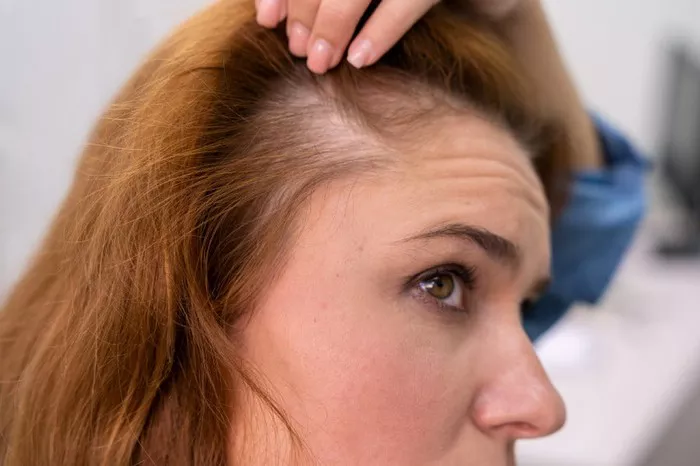Hair loss can be a challenging experience for many, impacting self-esteem and confidence. With advancements in medical technology, hair transplants have emerged as a viable solution for those seeking to restore their locks. However, the question often arises: Can anyone get a hair transplant? In this comprehensive exploration, we will delve into the factors that determine candidacy for a hair transplant, demystifying the process and shedding light on the possibilities.
Understanding the Basics of Hair Transplants
The Two Primary Techniques
Follicular Unit Transplantation (FUT): Involves the removal of a strip of scalp from the donor area, which is then dissected into individual follicular units for transplantation.
Follicular Unit Extraction (FUE): Involves the extraction of individual hair follicles directly from the donor area, typically at the back of the head.
Candidacy for Hair Transplant: Factors to Consider
Extent of Hair Loss: The severity and pattern of hair loss influence candidacy. Those with advanced baldness may have limited donor hair available for transplantation.
Age and Stability of Hair Loss: While age is not a strict determinant, candidates with stable patterns of hair loss are more suitable. Transplants may not be recommended for individuals experiencing rapidly progressing hair loss.
Health and Medical History: Overall health plays a crucial role. Conditions such as uncontrolled diabetes or certain autoimmune disorders may affect candidacy.
Donor Hair Quality: The quality and density of donor hair influence the success of a hair transplant. Individuals with good donor hair characteristics are more likely to be suitable candidates.
Expectations and Realistic Goals: Understanding the limitations and having realistic expectations are vital. A consultation with a qualified surgeon helps set achievable goals.
Who Is a Suitable Candidate for a Hair Transplant?
Men and Women Experiencing Pattern Baldness
Male Pattern Baldness: Hair transplants are a common solution for men experiencing male pattern baldness. The suitability depends on individual factors, including the extent of baldness.
Female Pattern Hair Loss: Women with localized hair loss can also be candidates. Female hair loss patterns vary, and a customized approach is crucial.
Individuals with Traumatic Hair Loss or Scarring
Accidental Trauma: Those who have experienced traumatic hair loss due to accidents or burns may benefit from hair transplants to restore lost hair in specific areas.
Scarring: Individuals with scarring alopecia, resulting from conditions like alopecia areata or prior surgeries, may find hair transplants beneficial, depending on the nature of the scarring.
Good General Health and Healing Capacity
No Underlying Health Issues: Candidates should be in overall good health. Conditions that may compromise healing, such as uncontrolled diabetes or blood clotting disorders, can affect eligibility.
Non-Smokers: Smoking can impact blood circulation and hinder the healing process. Non-smokers are generally more suitable candidates for hair transplants.
Realistic Expectations and Mental Well-Being
Understanding Limitations: Realistic expectations are crucial. While hair transplants can provide significant improvement, they may not fully replicate the density of natural hair.
Positive Mental Health: Candidates should have positive mental well-being and a healthy attitude towards the transformative process. A hair transplant is a tool for enhancement, not a cure for deeper psychological concerns.
Factors That Might Limit Candidacy
Limited Donor Hair
Insufficient Donor Hair: Individuals with limited donor hair due to previous extensive transplants or naturally low hair density may have limitations in achieving desired results.
Body Hair Transplants: In some cases, body hair can be used as an alternative donor source, but the success varies, and not everyone is a suitable candidate for this approach.
Ongoing Progressive Hair Loss
Rapidly Progressing Hair Loss: Those experiencing rapidly progressing hair loss may not be ideal candidates, as the transplanted hair could eventually be surrounded by areas of continued loss.
Young Age: Hair transplants are generally not recommended for individuals in their early twenties, as predicting the long-term stability of hair loss is challenging.
Medical Conditions Affecting Healing
Uncontrolled Medical Conditions: Individuals with certain medical conditions, such as uncontrolled diabetes or autoimmune disorders, may face challenges in healing and may not be suitable candidates.
Blood Clotting Disorders: Conditions affecting blood clotting can pose risks during the transplant procedure and affect overall candidacy.
The Consultation Process: Personalized Assessments
Meeting with a Qualified Hair Transplant Surgeon
Personalized Evaluation: A qualified surgeon conducts a personalized evaluation, considering factors like hair loss pattern, donor hair availability,and overall health.
Discussion of Goals and Expectations: The consultation involves a detailed discussion of the individual’s goals, expectations, and the potential outcomes of the hair transplant.
Customized Treatment Plans
Tailored Approach: Based on the assessment, the surgeon develops a customized treatment plan that may involve FUT, FUE, or a combination of both, depending on the individual’s needs.
Addressing Specific Concerns: The surgeon addresses specific concerns, such as frontal hairline design, temple point restoration, or crown coverage, ensuring a comprehensive approach to the individual’s unique situation.
Conclusion
In conclusion, while hair transplants offer a transformative solution for many, not everyone is an ideal candidate. Various factors, including the extent of hair loss, overall health, and realistic expectations, influence the suitability of individuals for the procedure. The consultation with a qualified hair transplant surgeon is a pivotal step, providing a personalized assessment and treatment plan. Understanding the possibilities and limitations, combined with expert guidance, ensures that those considering a hair transplant can make informed decisions about the potential for regaining their hair and confidence.
What Is The Best Age To Get Hair Transplant

